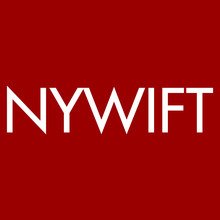Industry Jobs | Line Producer
/As one of the premier studio production companies in New York, Broadway Stages works to meet the growing needs of the film and TV industry while also focusing on the needs of our community. We provide the industry with a soundstage or location where they shoot their scenes, but they also need a skilled and experienced workforce. In this series, we look at the various jobs that make a production come to life. We hope it provides insight and encourages you to consider a career in the film and TV industry. This week, we look at the role of a line producer.
What Does a Line Producer Do?
In our Industry Jobs series, we have looked at the roles of various department heads on a film or tv production set, from gaffer and production designer, to costume designer, visual effects, craft services, and more. Each is tasked with developing and executing their respective department’s plan throughout various stages of production, including staying on schedule and on budget. This week, we look at a leadership role that ensures all these areas are working as planned, and that is, the line producer. When the credits roll on a film, you probably notice there are several types of producers listed and might wonder what they each do. For example, there is the executive producer, typically concerned with financing the production. And there is the producer, involved on the creative side. Then, there is the line producer, the key role concerned with budget and logistics. But why is it called the “line” producer? According to MasterClass, “The line producer acts as the liaison between the above-the-line talent (actors, writers, and directors) and the below-the-line positions (location scouts, makeup artists, and sound editors, for example).” This leadership role is key to a production’s overall success and requires superhero-like planning skills as they oversee major aspects of the production, from scheduling and budgeting, to staffing and equipment, safety compliance and insurance, and more. The line producer reports to the producer, and is involved with the development, pre-production, production, and post-production stages of a film. Let’s take a closer look at what this job entails.
Job description
In the development stage, the executive producer and producer hire the line producer, who breaks down the script to develop the initial shooting schedule and budget that the executive producer uses to raise money for the film.
In the pre-production stage, the line producer has a lot to do. They must first set up the production company and handle associated items such as establishing an office and bank account, and securing a lawyer, payroll company, and necessary insurance. They work with the 1st assistant director (1st AD) to break the down the script in more detail related to the shooting schedule, location, times, talent needed, etc. This helps the line producer land on a final budget, in which they will include a contingency for unforeseen expenses. At this stage, the line producer will also assemble a production team, and hire department heads with whom the line producer will work closely to ensure all is on schedule and budget throughout the production. The line producer is involved in other aspects during this stage, like location scouting and negotiating with vendors for equipment needed by each department.
In the production stage, the line producer transitions to the role of making sure all their planning is executed successfully. This includes daily meetings with department heads, making sure payroll is on time (to avoid the production being shut down by a film union), making sure required breaks are taken (to avoid union penalties), and ensuring compliance with health and safety procedures.
For the post-production stage, a post-production supervisor takes the lead, however the line producer still plays a key role. They hire post-production staff, including editors, composers, and sound designers. StudioBinder notes that in the post-production stage, “Line producer responsibilities include obtaining a post-production facility and ensuring the delivery of production materials.” They will also finalize (or wrap) the budget.
How do I become a Line Producer?
In addition to a deep understanding of the film production process, this leadership role requires strong planning, budgeting, networking, negotiating, and communication skills. A knowledge of health and safety requirements is also important. There is no formal education required for this job, however film courses can be helpful to learn about filmmaking, and business courses can be helpful to learn about finance and other topics relevant to the job. This leadership role requires gaining on-the-job experience and working your way up through various roles, for example, production assistant, location manager, production coordinator, production manager, etc.
Read more about the skills and training needed to become a line producer at MasterClass, StudioBinder, ProductionBeast, and MediaMatch. Read about the experiences of Line Producer Siddharth Ganji on Careers in Film. Learn about film and TV industry jobs, training, and more in the Broadway Stages’ Industry Resource Guide. Our guide provides information about industry-focused job posting sites; links to general recruiting sites; education and training programs; and state, city, and borough industry information.




